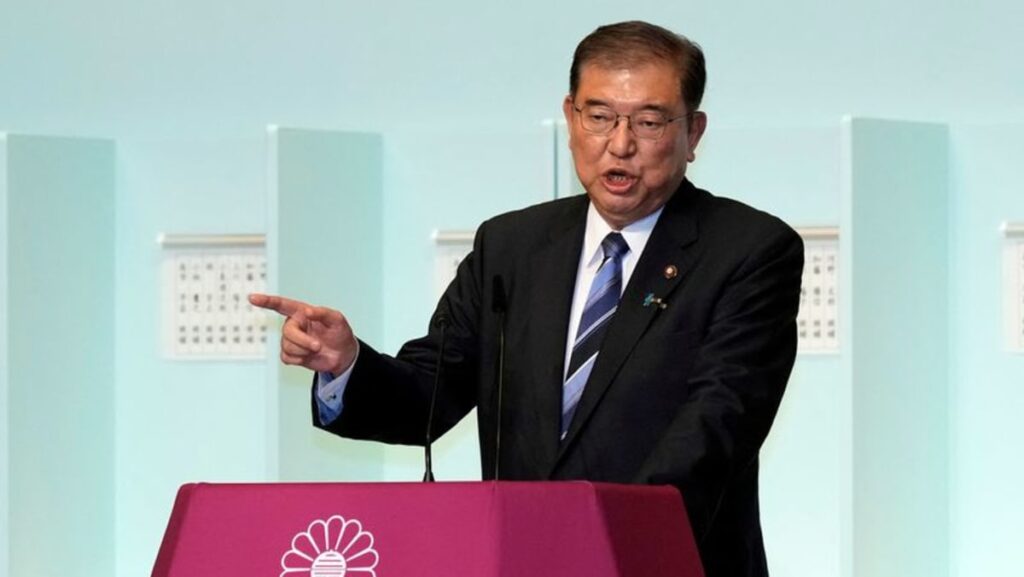“POPULAR FIGURE” FOR GENERAL ELECTION
Ishiba said he intends to call a general election at an early date, without giving specifics on a vote that must be called in the next 13 months. Analysts said his selection suggests some in the party have put aside personal grievances to harness his public appeal.
They have “gravitated towards a popular figure who does well in media appearances and isn’t afraid to criticise his own party when he thinks they’re in the wrong,” said Jeffrey Hall, a lecturer at Kanda University of International Studies.
The yen rebounded against the dollar on Ishiba’s victory after falling on news he would face the run-off against Takaichi, a monetary dove and fiscal expansionist.
In his press conference, Ishiba stressed the need to revitalise consumption in the world’s fourth-biggest economy to ensure Japan can fully emerge from a long period of economic stagnation.
Ishiba faces a raft of challenges at home and abroad.
He must quell anger over rising living costs and simmering anger about his scandal-plagued party, and navigate a volatile security environment in East Asia fuelled by an increasingly assertive China and nuclear-armed North Korea.
His approach to diplomacy with Japan’s closest ally, the United States, will also be in focus, as he has repeatedly called for a more balanced relationship with Washington.
In his campaign, he called for the creation of an Asian NATO, an idea that could draw ire from Beijing and has already been dismissed by a senior US official as hasty.
REBEL IN FRACTURED PARTY
The US ambassador to Japan, Rahm Emanuel, congratulated Ishiba, posting on X that he looked forward to working with him to strengthen the US-Japan alliance. A spokesperson for China’s foreign ministry, asked about Ishiba’s appointment, said Beijing hoped Japan had an “objective and correct” understanding of China.
Ishiba, who entered parliament in 1986 after a short banking career, was sidelined by outgoing Prime Minister Kishida, becoming a dissenting voice in the party who enjoyed broad support from LDP rank-and-file members as well as the public.
Ishiba has rebelled on policies including the increased use of nuclear energy, a contentious subject due to the devastating meltdown of the Fukushima nuclear plant in 2011, and has criticised his party for supporting Japan’s ban on married couples using separate surnames.
Hideki Masui, the head of nuclear energy lobby Japan Atomic Industrial Forum said on Friday he hoped Japan’s new leadership would continue promoting nuclear power, which he said was essential to the country’s energy security.
To solidify his rule over a fractured party, Ishiba will need to draw from a wide base to form his cabinet, said Rintaro Nishimura, an associate at the Asia Group Japan.
“If he just rewards the people who supported him, that’s going to cause a lot of trouble with the people who supported Takaichi and the people who dislike him,” Nishimura said.
Ishiba is expected to announce his cabinet after Tuesday’s parliament session.
https://www.channelnewsasia.com/east-asia/shigeru-ishiba-become-next-japan-prime-minister-4641246


